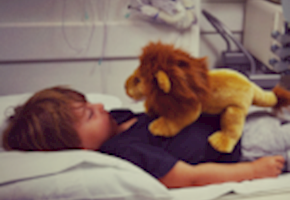 Written by Shelley Tzorfas: ADHD can show up in the preschool years but the symptoms are often overlooked. Years ago the preschool teacher might have called the parents to explain that the child had displayed “Odd” behaviors or did not seem to fit in. Today, that call is extremely rare. Teachers are not so eager to inform the parents. For one thing the parent might blame the school and simply take their child to a different school. Another reason that they are reluctant to inform the parent is because some classes have a large number of children with issues. It seems as if it is fast becoming the “Norm.”
Written by Shelley Tzorfas: ADHD can show up in the preschool years but the symptoms are often overlooked. Years ago the preschool teacher might have called the parents to explain that the child had displayed “Odd” behaviors or did not seem to fit in. Today, that call is extremely rare. Teachers are not so eager to inform the parents. For one thing the parent might blame the school and simply take their child to a different school. Another reason that they are reluctant to inform the parent is because some classes have a large number of children with issues. It seems as if it is fast becoming the “Norm.”
There is not one particular symptom that indicates early childhood ADHD but rather it is a group of behaviors that are of concern. By identifying certain behaviors you might actually improve the situation before your child struggles in elementary school. By catching the symptoms and exposing your child to some form of early intervention, you might be able to remedy the situation.
ADHD Preschool Symptoms -Clues Most Parents Miss
Here are some symptoms to watch for. Your daughter may be whining and screaming a lot, way more than other toddlers. Difficulty sleeping is common. (Hers as well as yours..) He or she may be behaving in a bossy manner. You call his or her name but get ignored. You ask your child to follow 2 or 3 simple instructions and they refuse to do what was asked. You might say, “‘Shut the TV and come to the table for lunch.” After being ignored you go over and shut it yourself and begin to have a tense attitude. You do not like being ignored.
Understand that you are not being ignored but that your child might not be processing what you are saying. He or she might have an , “Auditory Processing Disorder,” or an “Auditory glitch.” You can check to see if this might be one part of the equation. Gently ask your child, “What did you hear me say?” If he or she attempts to repeat the instruction and can not- you may just have an answer. Imagine what might have occurred in a class with 15 kids in the room if your child can not repeat what was said in a one to one situation? One solution is to make sure that you have eye contact when requesting that the TV be turned off.
The bossiness can indicate that the child is not learning social cues. They do not know how to get others to want to cooperate and become too demanding. Demands have the opposite effect of what your son or daughter is seeking. Other children can begin to be repelled. Gently teach this. Try using puppets to teach your child what works best when with other children.
The inability to fall asleep or stay asleep can turn into quite a problem for both day and night. Some parents have turned to the use of “Melatonin” to assist with this issue. After checking with your family doctor, you might be amazed that it is found in the vitamin section of your local pharmacy or food store.
Other areas to watch for are how he or she responds to direction type commands. Put your toy,”Next to,” your bike. Put your stuffed animal,”Inside,” your cubby. “Put your slippers “Under,” the table. Words such as above, behind,over and under are usually difficult concepts for children at risk for ADHD.
Speech delays are a red flag.The earlier speech therapy begins, the better the outcome. Some doctors recommend a “Wait and see approach. I think it is far better to get speech therapy early, than miss the opportunity.No harm is done by getting some sessions. Delaying speech therapy if needed can have long term consequences.
Another symptom to watch out for is a toddler that has repeating infections, particularly ear infections. Antibiotics are routinely used to stop infections but they can alter the “Gut Flora,” or healthy bacteria in the gut. Antibiotics kill the infection but simultaneously kill the healthy bacteria. You can look for ways to prevent or reduce ear infections. Health food stores sell garlic oil made for children’s ears. A child might benefit from taking acidophilus, the healthy bacteria that antibiotics can harm.
Play games with your preschooler emphasizing the command words. Bake with your child so that he or she learn the importance of sequencing; what comes first, second and last. Teach her or him to organize by sorting items into colors, shapes and sizes..
By observing these areas and putting in the extra effort when your child is in preschool, your unfocused somewhat hyperactive child might just jump into their ABC’s.

About the Author:
Shelley Tzorfas BFA/MFA has been working with children and teens on a one to one basis who have ADHD, Autism and Dyslexia for more than 2 decades.
Currently working on her book, “Recovering Autism ADHD and Special Needs,” Shelley believes that most issues are based on physical problems- not psychiatric. Sometimes the child struggles because the eyes do not track together, sometimes there are meltdowns because of a food dye. By working holistically, many overlapping layers of difficulties can be resolved.





Add A Comment
Thank you for your comment.
Sorry! There was a problem with your comment submission. Please try again.
Comment
Allowed HTML: <b>, <i>, <u>, <a>
Comments
Thank you for your comment.
Sorry! There was a problem with your comment submission. Please try again.
Thank you for your comment.
Sorry! There was a problem with your comment submission. Please try again.